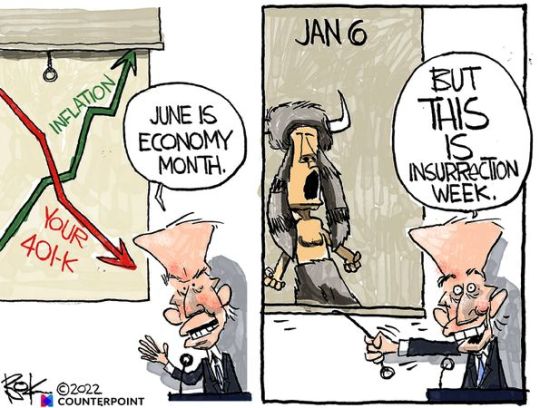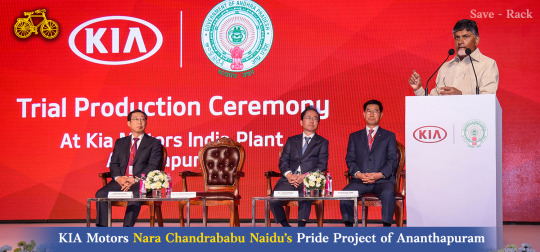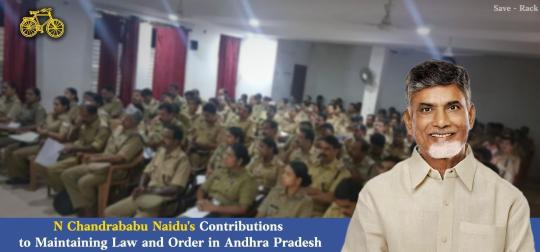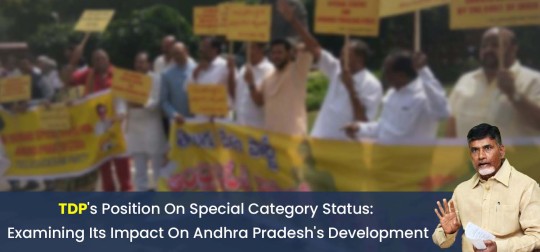#and no significant policy achievements during their tenure in the majority.
Text




#There are 10#000 reasons why Nancy Pelosi is singularly negligent in the U.S. Capitol’s comprehensive security failures on January 6th. Instead of addre#she is pointing her finger at the person whose help she ignored#President Donald Trump.#The predictable hallmark of a left-wing coverup is to somehow find a way to scapegoat the 45th president of the United States#Donald Trump#for their own abysmal missteps and errors. The Democrats’ twisted creativity in pursuing this anomaly is truly something to behold.#The mainstream media fallout from January 6th was a godsend to Democrats who found themselves on the heels of the disproven Russia Hoax#a spectacularly underwhelming performance by Robert Mueller#two failed impeachments#and no significant policy achievements during their tenure in the majority.#At that point#their win record was abysmal at best. As America suffers from Democrats and their failures#the Left pounced on January 6th in a desperate attempt to distract the country from their own incompetence.#But the facts weren’t out about that day. Many remain undiscovered. And today#to the annoyance of hysterical Democrats hellbent on advancing their theatrical narrative about January 6th#Republicans are raising one looming question that remains overtly (and purposefully) ignored by the Democrats’ Partisan Witch-hunt Committe#Why did Nancy Pelosi fail to properly protect the Capitol while President Trump#on January 4th#requested 10#000 National Guard Troops be available to provide security to Americans and the United States Capitol on January 6th?#The Left would very much like for you to ignore this question. Its answer fundamentally undermines the January 6th Partisan Witch-hunt Comm#” “trying to overthrow the Republic#” or “subverting the democratic process#” you wouldn’t have asked for 10#000 National Guard troops to protect the institution you were trying to overthrow!#What does Pelosi know? And why won’t she testify?#The simple fact is#Nancy Pelosi’s failures on January 6th exposed the U.S. Capitol’s vulnerabilities during the certification (and constitutionally-valid obje#Pelosi’s blunders were not anomalies in her leadership
0 notes
Text
N Chandrababu Naidu And TDP Government's Transformative Legacy In Nandyala
Nandyala, a town nestled in the heart of Andhra Pradesh, has witnessed significant developmental strides under the dynamic leadership of The previous Telugu Desam Party (TDP) government and N Chandrababu Naidu
. The town's growth and progress during its tenure stand as a testament to its unwavering commitment to fostering economic prosperity, infrastructural development, and social welfare. One of the hallmark TDP achievements of the former TDP government in Nandyala was the transformation of the region's agrarian landscape. Nara Chandrababu Naidu, known for his astute economic policies, implemented innovative agricultural practices with the TDP agenda of enhancing productivity and ensuring sustainable livelihoods for farmers. The introduction of advanced irrigation systems, such as drip and sprinkler irrigation, played a pivotal role in optimizing water usage and increasing crop yields. This not only empowered local farmers but also bolstered the overall agricultural output of Nandyala, contributing to the state's food security.

The TDP government also recognized the importance of education in driving societal progress. N. Chandrababu Naidu, a staunch advocate for quality education, implemented initiatives to enhance the educational infrastructure in Nandyala. Numerous schools and colleges were established, providing accessible and quality education to the youth of the region. Additionally, the TDP government focused on skill development programs, ensuring that the youth of Nandyala were equipped with the necessary tools to thrive in a rapidly evolving job market. In tandem with educational reforms, the TDP government and District TDP leaders prioritized healthcare, aiming to create a robust and accessible healthcare system in Nandyala. The establishment of healthcare facilities, equipped with modern medical technology, significantly improved healthcare services in the region. This proactive approach to healthcare not only enhanced the well-being of the local population but also contributed to the overall development and prosperity of Nandyala. Infrastructural development emerged as a cornerstone of the TDP Party-led government's agenda, transforming Nandyala into a well-connected and developed urban centre. Road networks were expanded and upgraded, facilitating seamless connectivity within the town and linking it to major cities and economic hubs. The TDP development of reliable transportation infrastructure not only boosted local businesses but also attracted external investments, further catalyzing economic growth.
The TDP government, under N. Chandrababu Naidu's leadership also recognized the potential of technology in driving development. Initiatives such as the establishment of IT parks and the promotion of digital literacy contributed to the integration of Nandyala into the digital economy. This not only created employment opportunities but also positioned Nandyala as a hub for technological innovation and progress. Furthermore, the TDP government prioritized social welfare programs, ensuring that marginalized communities in Nandyala were included in the developmental process. TDP schemes focused on poverty alleviation, women's empowerment, and healthcare for the underprivileged were implemented, fostering an inclusive and equitable society. In conclusion, the tenure of N. Chandrababu Naidu and the TDP government marked a transformative period for Nandyala, leaving an indelible imprint on its socio-economic landscape. The combination of strategic TDP policies, visionary leadership, and a commitment to inclusive development propelled Nandyala into a thriving and dynamic town. While political landscapes may evolve, the developmental legacy of the TDP government in Nandyala stands as a testament to the positive impact that effective governance can have on the lives of its citizens.
0 notes
Text
N Chandrababu Naidu Leadership Attracted Asian Paints To Visakhapatnam
Visakhapatnam, often referred to as the "City of Destiny," witnessed a significant industrial resurgence during the tenure of the Telugu Desam Party (TDP) government led by the dynamic N. Chandrababu Naidu. Among the notable success stories during this period, the entry of Asian Paints into Visakhapatnam stands out as a testament to the state's commitment to fostering economic growth and attracting major players in various industries. The TDP government, under the visionary leadership of N. Chandrababu Naidu, implemented strategic TDP policies to transform Andhra Pradesh into an industrial hub. Recognizing the potential of Visakhapatnam as a key player in this economic revitalization, the government actively sought to attract leading companies, and Asian Paints was one of the first to embrace the opportunity.

Asian Paints, India's leading paint company, made a strategic decision to establish a presence in Visakhapatnam during the TDP government's tenure. The city's strategic location with a well-connected port, skilled workforce, and a conducive business environment made it an attractive destination for industries seeking growth and expansion. The government's pro-business policies and TDP schemes, including ease of doing business initiatives and infrastructure development, played a pivotal role in attracting major investments. The entry of Asian Paints into Visakhapatnam marked a significant TDP achievement not only for the city but for the entire state of Andhra Pradesh. The establishment of the Asian Paints manufacturing unit not only brought economic benefits but also created employment opportunities for the local population. This move contributed to the overall socio-economic development of the region, aligning with N Chandrababu Naidu’s vision of inclusive growth. The TDP government's commitment to industrial development was further highlighted by the strategic planning that accompanied the arrival of Asian Paints. The District TDP leaders ensured the provision of necessary infrastructure, such as reliable power supply, water resources, and transportation facilities, to support the smooth functioning of industrial operations. This proactive TDP agenda helped create a conducive ecosystem for businesses to thrive and contribute to the economic prosperity of the region.
Furthermore, Asian Paints' decision to set up operations in Visakhapatnam underscored the city's potential as a manufacturing and business hub. This TDP development not only attracted attention from other industries but also positioned Visakhapatnam as a key player in the national industrial landscape. In conclusion, the influx of industries like Asian Paints to Visakhapatnam during the TDP government's tenure, under the dynamic leadership of N. Chandrababu Naidu, marked a crucial phase in the city's economic resurgence. The strategic policies, pro-business environment, and infrastructural development initiatives created an attractive destination for investments, fostering economic growth, job creation, and overall development. The Asian Paints saga in Visakhapatnam stands as a shining example of successful industrial integration by the TDP party-led government, setting the stage for a brighter future for the City of Destiny. Take a look at the official TDP website for the latest news and all the Visakhapatnam District news.
0 notes
Text
Benjamin Netanyahu: From Kibbutz Boy to King of Israeli Politics

Benjamin Netanyahu, the current Prime Minister of Israel, is a towering figure in Israeli and international politics. With a career spanning over three decades, he has weathered political storms, faced international scrutiny, and navigated complex regional conflicts. Here's a closer look at the man often called "Bibi":
Early Life and Military Service:
Born in Tel Aviv in 1949, Netanyahu grew up on a kibbutz and later served in the elite Sayeret Matkal special forces unit, participating in daring missions during the Yom Kippur War. He then pursued a doctorate in economics at MIT, returning to Israel to work as an economic consultant before entering politics.
Political Ascent:
Netanyahu's political career began in the Likud party, where he quickly rose through the ranks. He became Israel's youngest-ever Prime Minister in 1996, serving until 1999. After a period in opposition, he returned to power in 2009 and served two consecutive terms before losing in 2015. However, he staged a political comeback in 2022, becoming the longest-serving Prime Minister in Israeli history.
Key Policies and Controversies:
Netanyahu's tenure has been marked by strong stances on security, promoting close ties with the United States, and expanding settlements in the occupied Palestinian territories. His policies have often drawn criticism from both Palestinians and some segments of the international community. Additionally, he has faced corruption charges, though he has vehemently denied any wrongdoing.
Future Challenges and Legacy:
Netanyahu's current term coincides with a period of political fragmentation in Israel. He faces internal opposition from within his own coalition and ongoing tensions with Palestinians and neighboring Arab countries. His legacy will likely be debated for years to come, shaped by his accomplishments in areas like economic growth and security, as well as his controversial stances on major issues.
Beyond the political arena:
Netanyahu is a polyglot, fluent in several languages, and known for his intelligence and sharp wit. He is also a published author and historian, with books on terrorism and the 1967 Six-Day War.
In conclusion, Benjamin Netanyahu is a complex and multifaceted figure whose impact on Israeli and global politics is undeniable. Understanding his life and career requires navigating a web of achievements, controversies, and complexities. Whether celebrated or criticized, Netanyahu's presence on the world stage will undoubtedly continue to influence the course of events for years to come.
I hope this provides a concise and informative overview of Benjamin Netanyahu. Please let me know if you have any specific questions or want me to delve deeper into any particular aspect of his career or policies.
for more information visit us:-
0 notes
Text
N Chandrababu Naidu's Vision for Inclusive Growth and Global Leadership in 2047

N Chandrababu Naidu, the former Chief Minister of Andhra Pradesh, recently delivered a compelling speech at the 20th-anniversary celebration of the Indian School of Business (ISB). He reminisced about the remarkable efforts that went into establishing ISB in Hyderabad during his tenure, including convincing business leaders to choose Hyderabad over Mumbai, Bengaluru, and Chennai as the location for this prestigious B-school. Moreover, he recounted the pivotal role he played in persuading Microsoft founder Bill Gates to establish the tech giant's India Development Centre in Hyderabad.
Reflecting on the past, N Chandrababu Naidu highlighted how the location that ISB now occupies was once nothing more than barren land. His government initiated the development of a new city, Gachibowli, to host the National Games, which subsequently triggered progress in a previously underdeveloped neighbourhood. One of the key achievements of N Chandrababu Naidu's leadership under the Telugu Desam Party (TDP) was the transformation of Andhra Pradesh. He proudly stated that his record remains unbroken, mainly due to the division of the state that occurred later. He acknowledged that his successors had continued many of his policies, harnessing the goodwill built during his tenure. His vision for India in 2047 is ambitious, aiming to make Indians global wealth creators, the richest community, and major job providers. He called upon business leaders to actively contribute to public policy-making and collaborate in addressing societal inequalities. N Chandrababu Naidu emphasized the pivotal role leaders play in both corporate and public governance. He firmly believed that India's ascent to new heights could only be realized if all segments of society worked together. He stressed that the emphasis should always be on ensuring that welfare and development progress hand in hand. This approach, he argued, prevents wealth from concentrating in the hands of a privileged few. Search the TDP website to learn the latest news and breaking news on both political and local.
Highlighting the significance of institutions like ISB in societal development, N Chandrababu Naidu expressed his desire to see ISB consistently ranked among the top three globally. ISB's Dean, Madan Pillutla, lauded the B-school's impressive accomplishments in its 20-year journey and its aspiration to be counted among the world's top 10. He stressed the importance of students conducting research that has global relevance and recognition. N Chandrababu Naidu's vision for India in 2047 underscores the need for inclusive growth and global leadership. He recognizes that achieving this vision requires unity and a simultaneous focus on welfare and development. This concept, though not new, often takes a back seat in governments and corporations prioritizing profits over people. The former Chief Minister's call for collaboration and equity is a refreshing perspective that aligns with long-standing economic and policy discussions. Furthermore, N Chandrababu Naidu's emphasis on leadership in corporate and public governance is a critical aspect of his vision. He believes that effective leadership can bridge gaps and drive positive change. His call for business managers to actively participate in shaping public policy and addressing social and economic inequalities is a significant step toward a more equitable society.
Lastly, N Chandrababu Naidu's recognition of the role of educational institutions like ISB in fostering development is noteworthy. Education, he understands, is a fundamental driver of inclusive growth. ISB's commitment to conducting globally respected India-centric research exemplifies how education can be a force for equitable progress, benefitting all members of society. Look through the official TDP website for the TDP agenda and details about Manifesto 2024.
0 notes
Text
The University Transcript
A university transcript is an official document issued by a higher education institution that provides a comprehensive record of a student's academic achievements. It serves as a detailed account of the courses undertaken, grades received, and overall performance throughout the academic tenure. Think of it as a roadmap that showcases your educational journey, from the first day of freshman year to the culmination of your degree.
Key Components:
Personal Information:
Your full name, student identification number, and contact details.
Dates of enrollment and graduation.
Course Information:
A list of all the courses you've taken during your academic program.
Course codes, titles, and the respective credit hours.
Grades:
The grades earned in each course, usually represented as letter grades (A, B, C, etc.) or numerical values.
Grade point average (GPA) – a cumulative measure of your academic performance.
Degree Conferment:
The degree earned, along with the major and any concentrations or specializations.
Honors or distinctions received, such as cum laude or magna cum laude.
Institutional Policies:
Information about academic standing, probation, or other institutional policies.
Significance of the University Transcript:
Academic Record:
Employers and graduate schools often request transcripts to evaluate a candidate's academic prowess and suitability for a particular role or program.
Proof of Completion:
The transcript serves as official documentation that you have completed the requirements for your degree.
Career Opportunities:
Some professions may require a transcript during the hiring process to assess your academic qualifications and suitability for the role.
Interpreting the Transcript:
GPA:
A higher GPA generally indicates stronger academic performance. Employers and academic institutions often use GPA as a quick metric for evaluating candidates.
Course Selection:
The courses you've taken can provide insight into your academic interests, specialization, and the breadth of your knowledge.
Consistency:
Consistent high performance across various semesters reflects dedication and a strong work ethic.
Conclusion:
In essence, a university transcript is more than just a piece of paper; it encapsulates the dedication, hard work, and accomplishments of your academic journey. As you navigate through your higher education, keep in mind the significance of this document and the role it plays in shaping your future endeavors. Understanding your transcript empowers you to showcase your academic achievements effectively, opening doors to exciting opportunities on your post-graduate path.
University Transcript
Academic Transcript
Application Transcript
Degree Transcript
>> >>
0 notes
Text
Coalition Building And Governance Strategies Under TDP Government
The Telugu Desam Party (TDP), a prominent political force in the Indian state of Andhra Pradesh, has been a major player in the region's politics for several decades. Founded by the visionary leader N. T. Rama Rao, the party has undergone significant changes in its strategies, coalition building, and governance approaches over the years. In this article, we will delve into the dynamics of the TDP, including its Top TDP Leaders, top achievements, contributions, TDP Live Updates, and the role of its stalwart leader, N Chandrababu Naidu. TDP's strength lies in its dedicated cadre and TDP MLAs who represent the party's ideology and vision. The party has consistently strived to nurture grassroots leadership, and its TDP MLAs play a pivotal role in shaping the political landscape of Andhra Pradesh. These MLAs work tirelessly to connect with the masses, addressing their concerns and championing the party's policies in the state assembly. The party's ability to maintain a cohesive unit of TDP Leaders is crucial for its success in the political arena.

Over the years, the TDP has achieved several milestones that have left a lasting impact on the state. During N Chandrababu Naidu's tenure as Chief Minister, the TDP government implemented sweeping economic reforms, transforming Andhra Pradesh into a hub for information technology and attracting significant investments. This led to the state's economic growth and development. TDP has been at the forefront of initiating and completing large-scale developmental projects, including the Polavaram Irrigation Project, Amaravati Capital City, and the Pattiseema Lift Irrigation Scheme. These projects have aimed to improve infrastructure and living standards in the state. The TDP government launched various welfare schemes to uplift the marginalized sections of society, such as NTR Bharosa and Chandranna Bima. These initiatives have provided financial assistance and social security to thousands of families. In addition to its TDP Achievements, the TDP has made significant Top TDP Contributions to the political landscape of Andhra Pradesh and the country. TDP has consistently represented the aspirations of the Telugu-speaking people, advocating for their rights and interests on both state and national platforms. The party has been actively involved in coalition politics at the national level, aligning with other regional parties to safeguard the interests of Andhra Pradesh. Under the leadership of N Chandrababu Naidu, the TDP introduced technocratic governance methods, emphasizing transparency and efficiency in administration. To stay updated on the TDP's activities, TDP Achievements, and contributions, one can regularly follow TDP Live Updates on various news channels, websites, and social media platforms. These TDP Live Updates provide real-time information on the party's decisions, campaigns, and responses to key issues.
N Chandrababu Naidu, the former Chief Minister of Andhra Pradesh and TDP supremo, has been the driving force behind the party's strategies and governance. His leadership and vision have been instrumental in shaping the TDP's trajectory. N Chandrababu Naidu is known for his emphasis on technology, economic reforms, and innovative governance methods. He continues to be a prominent figure in Andhra Pradesh politics and a key player in the state's development. The TDP's journey in Andhra Pradesh politics has been marked by dynamic coalition building, innovative governance strategies, and dedicated leadership. The party's TDP MLAs have played a crucial role in representing its interests, while its Top TDP Achievements and contributions have left a lasting impact on the state. To stay informed about the TDP's activities and leadership, following TDP Live Updates and keeping an eye on N Chandrababu Naidu's role is essential. As the political landscape evolves, the TDP's ability to adapt and address the needs of the people will continue to shape its future in Andhra Pradesh.
0 notes
Text
KIA Motors: Nara Chandrababu Naidu’s Pride Project of Ananthapuram
The pride project of Ananthapuramu District, KIA Motors, stands as a testament to the transformative policies and focused agenda of the Telugu Desam Party (TDP) government, led by the visionary leader N. Chandrababu Naidu. The employment statistics associated with KIA Motors and its vendor companies during the TDP government's tenure reflect the party's commitment to creating job opportunities, fostering economic growth, and empowering the youth of Ananthapuramu District and beyond. The TDP policies under the leadership of Nara Chandrababu Naidu have consistently emphasized economic development as a cornerstone of their TDP agenda. Recognizing the potential of industries to drive economic growth and employment generation, the former TDP government actively pursued initiatives that would attract major investments. The establishment of KIA Motors in Ananthapuram District was a prime example of their strategic approach towards industrialization.

KIA Motors, a globally renowned automobile manufacturer, chose Ananthapuramu District as the location for its state-of-the-art manufacturing facility. This decision marked a significant TDP achievement in Ananthapuram district's journey towards becoming an industrial hub. The project not only promised technological advancements but also held the potential to transform the employment landscape of the region. During the tenure of Nara Chandrababu Naidu’s TDP government, KIA Motors, and its associated vendor companies generated substantial employment opportunities in Ananthapuram District. A staggering 1,525 individuals were employed, with 810 of them hailing from the district itself. This TDP contribution not only reduced unemployment but also infused a sense of pride and hope among the local population.
The commitment of the TDP government to inclusive growth extended beyond district boundaries. A notable 200 youth from other districts within the state found employment through KIA Motors and its vendors. This approach aligned with the TDP manifesto, which envisioned prosperity spreading across regions, fostering unity, and creating a more equitable society. The Nara Chandrababu Naidu's vision, as outlined in its manifesto, revolved around economic growth, job creation, and the empowerment of the youth. The success of the KIA Motors project was a tangible realization of these objectives. These TDP developments highlighted the importance of nurturing industries, attracting investments, and supporting entrepreneurship. The government's efforts in bringing KIA Motors to Ananthapuramu District showcased their dedication to turning these promises into reality.
The Ananthapuram district TDP leaders understood that sustainable development wasn't just about infrastructure. It also involved nurturing human resources. To this end, the former TDP government initiated TDP schemes, and skill development programs, ensuring that the local workforce was equipped with the necessary expertise to excel in the opportunities provided by industries like KIA Motors. This holistic approach aligned with N Chandrababu Naidu’s vision of creating a skilled and employable population. For more TDP developments in Ananthapuram district, delve into the official website for Ananthapuram local news and Ananthapuram TDP news.
Overall, The employment generated by KIA Motors and its vendor companies in Ananthapuramu District during the TDP government's tenure reflects the success of the TDP party's policies and agenda. Led by Nara Chandrababu Naidu, the TDP government's commitment to economic development, job creation, and inclusive growth was brought to life through projects like KIA Motors. The impact of these initiatives extended beyond district boundaries, showcasing the potential for positive change when visionary leadership and strategic policies converge. The KIA Motors project remains a beacon of hope, symbolizing the transformative power of well-planned industrialization in fostering prosperity and empowering the youth.
#nellore policies#nellore latest updates#nellore college updates#spsr nellore news#potti sriramulu district news#spsr nellore#nellore news in telugu#nellore municipality news#nellore jilla varthalu#breaking news on nellore#latest news on nellore#nellore live updates#nellore district live updates#latest nellore news & live updates
0 notes
Text
Seeking Growth and Achievement? See How Education Can Lead The Way!

INTRODUCTION:
In today’s fast-paced and competitive world, personal and professional growth is a constant pursuit for individuals aiming to achieve success and fulfillment. Education plays a vital role in this journey, guiding us towards our goals, offering a pathway to expand knowledge, sharpen skills, and unlock a world of opportunities.In this blog, we will see why education matters so much and how it can transition your life.
Why Education Matters?

Empowering Personal Growth: Education opens doors to new ideas, perspectives, and experiences, encouraging individuals to become lifelong learners. By nurturing critical thinking, problem-solving, and communication abilities, education empowers individuals to overcome challenges and adapt to changing circumstances, fostering personal growth.
Reducing Inequality and Poverty: Education has the power to break the cycle of poverty. When individuals are educated, they have higher chances of securing stable employment and improving their living standards. Education plays a major role in reducing economic disparities and promoting social equality.
Unlocking Opportunities:It open ups opportunities, and equips individuals with the tools to pursue their passions, whether through formal academics, vocational training, or self-directed learning. This leads to better careers and higher earnings.
Fostering Innovation and Progress: Education fosters innovation and progress in the society. Well-educated individuals contribute to advancements in science, technology, architecture of various fields, driving societal upliftment. As people acquire knowledge and skills, they can address pressing challenges, find sustainable solutions and fuel economic growth.
Promoting Health and Well-being: Education not only imparts knowledge about health and hygiene but also empowers individuals to make healthier lifestyle choices. Educated individuals are more likely to seek preventive healthcare measures and have better access to healthcare resources.
The Struggle of Limited Education Opportunities:
Education is more than just learning from books it has been regarded as the foundation for personal and societal growth. It equips individuals with knowledge, skills, and opportunities, paving the way for a brighter tomorrow. However, the reality is that many individuals which arearound 60 to 65% are unable to pursue education due to economic constraints, leaving them unaware of the possibilities that education can bring. The lack of stable job prospects further compounds their struggles, impacting their social standing and personal lives and the challenges faced by young individuals. Many are compelled to work on contract tenure, but they struggle to find job stability. The contracts keep changing every six months, leaving them stuck in a cycle of uncertainty, which hampers their personal and professional development.
The Social Angle and Challenges:
Any individual’s educational background and job stability play a significant role in their social acceptance, particularly during the age of marriage. Families of potential partners inquire about education and permanent employment, leading to challenges for those who have pursued courses but lack formal degrees and the absence of permanent jobs. This affects financial stability, making it challenging to secure loans and financial supports from banks. This cycle continues to limit their opportunities and financial stability.
How we can break this barrier and empower these youth?
Yashaswi Group has launched the “Learn and Earn” program as part of the national education policy to promote experiential learning. This initiative aims to empower the youth by providing on-the-job training, bridging the gap between education and employment for those who face challenges in pursuing traditional learning pathways. It aims to promote holistic development among the youth who are unemployed or unable to continue their education due to financial constraints. The program provides a life-changing opportunity for economically backward students. This learn and earn model allows student trainees to gain valuable practical skills while earning a living.
Education is a powerful journey that unlocks your potential and empowers you to make a positive impact on society. It is essential not only for your growth but also to shape a better world for everyone. Despite the challenges, programs like Learn and Earn open doors to opportunities where every individual has the opportunity to learn, grow, and realize their full potential. Together, we can break barriers, empower the youth, and create a society where education truly leads the way to a brighter and more promising future for mankind.
0 notes
Text
Rythu Runa Mafi Yojana And Agricultural Reforms In Andhra Pradesh By TDP Government
Under the leadership of N Chandrababu Naidu the TDP party has launched the Rythu Runa Mafi Yojana scheme for farm loan waiver during his recent tenure in the state of Andhra Pradesh. This ambitious initiative aimed to alleviate the financial burden on farmers and promote agricultural growth. Alongside this program, the TDP Party has substantially contributed to the state's development, implemented various schemes, and upheld its core agenda and manifesto promises. Under the leadership of Nara Chandrababu Naidu, the TDP government has made several noteworthy TDP achievements and milestones in Andhra Pradesh. The party spearheaded numerous developmental projects, resulting in significant advancements across various sectors. These include infrastructural development, industrial growth, welfare programs, and agricultural reforms. The TDP-led government played a pivotal role in transforming the state's infrastructure. The construction of world-class airports, seaports, highways, and irrigation projects has enhanced connectivity and facilitated economic progress. The development of Visakhapatnam as a major IT and industrial hub has attracted investments and generate employment opportunities for the youth.

The TDP has consistently advocated for the welfare and empowerment of all sections of society. The TDP Agenda focuses on inclusive growth, sustainable development, and the upliftment of marginalized communities. The TDP manifesto includes promises such as providing affordable housing, ensuring quality education, promoting healthcare accessibility, and creating employment opportunities. The TDP government introduced innovative TDP policies to boost farmers' income and productivity in the agricultural sector. The Rythu Runa Mafi Yojana was one such flagship program aimed at alleviating the burden of agricultural loans. Through this TDP scheme, eligible farmers had their loans waived, providing them with much-needed relief and an opportunity for a fresh start. The TDP has a strong leadership base consisting of experienced and dedicated leaders.
N. Chandrababu Naidu, the party's charismatic leader, has been instrumental in shaping the party's vision and driving its agenda forward. Other prominent TDP party leaders have played pivotal roles in implementing various schemes and policies. Besides the Rythu Runa Mafi Yojana, the TDP government has introduced several other schemes to address the needs of different sections of society. The "Pasupu-Kumkuma" scheme aimed at empowering women by providing financial assistance during festivals. The "NTR Housing Scheme" aimed to provide affordable housing to the economically weaker sections. Through the latest news and TDP party news on the official website know more of these initiatives that demonstrate the TDP's commitment to the welfare of all citizens.
The Rythu Runa Mafi Yojana, launched by the TDP government under the leadership of Nara Chandrababu Naidu, has been a significant step towards the financial empowerment of farmers in Andhra Pradesh. Alongside this farm loan waiver scheme, the TDP has made notable TDP contributions to the state's development through its promises, and the implementation of various welfare schemes and policies. The TDP's commitment to inclusive growth, infrastructural development, and the welfare of all sections of society has played a crucial role in shaping Andhra Pradesh's progress. With strong leadership and a focus on uplifting marginalized communities, the TDP has left an indelible mark on the state's development trajectory. As Andhra Pradesh moves forward, it is essential to recognize and appreciate the TDP's contributions and its commitment to the betterment of the people.
0 notes
Text
The Rise and Fall of Lalu Yadav: A Political Journey in Bihar

Lalu Prasad Yadav, a charismatic and influential political leader, has left an indelible mark on Bihar's political landscape. From humble beginnings to becoming the Chief Minister of Bihar, Lalu Yadav's political journey has been a roller-coaster ride of triumphs and setbacks, marked by both admiration and controversy. His rise and fall encompassed a mix of populist policies, social empowerment, and governance challenges that have shaped Bihar's politics for decades.
The Rise of Lalu Yadav:
Lalu Prasad Yadav emerged as a prominent leader during the tumultuous political climate of the 1970s and 1980s. A member of the socialist Janata Party, he soon became a rising star within the ranks of Bihar's politics. His remarkable ability to connect with the masses and address their concerns earned him the moniker "Messenjah of the Poor."
In 1990, Lalu Yadav reached the pinnacle of his political career when he was elected as the Chief Minister of Bihar. His tenure was marked by bold and populist policies, such as the implementation of a 50% reservation for backward castes and Dalits in government jobs and educational institutions, which further solidified his support base among marginalized communities.
Under his leadership, the state witnessed socio-political changes that provided representation and opportunities for the underprivileged sections of society. However, his rule was also criticized for its alleged neglect of governance and law and order issues.
Controversies and Setbacks:
Despite his initial popularity, Lalu Yadav's political journey was not without controversy. The fodder scam, which surfaced during his tenure as Chief Minister, became a significant turning point in his career. The scam involved the embezzlement of funds meant for cattle fodder, leading to a major political and legal crisis. Lalu Yadav's involvement in the scam resulted in his resignation from the Chief Minister's post in 1997.
Subsequently, Lalu Yadav faced legal battles and was convicted in the fodder scam cases, leading to his disqualification from electoral politics for some time. His wife, Rabri Devi, took over as the Chief Minister of Bihar during his disqualification period.
Legacy and Relevance:
Despite the setbacks, Lalu Yadav remained a prominent political figure and continued to wield significant influence in Bihar's politics through his party, the Rashtriya Janata Dal (RJD). His ability to mobilize support and connect with the masses helped the RJD maintain its relevance as a major political force in the state.
Lalu Yadav's political legacy also extended beyond Bihar's borders. He played a key role in the formation of the United Progressive Alliance (UPA) at the national level, which went on to form the central government in India in 2004 and 2009. His alliance with the Congress party and other regional parties demonstrated his strategic acumen and ability to form formidable political alliances.
Challenges and the Path Ahead:
In recent years, the RJD faced challenges in Bihar's electoral landscape. Lalu Yadav's conviction in the fodder scam and subsequent legal battles limited his direct involvement in active politics. Additionally, political dynamics in Bihar shifted with the emergence of new political players and changing aspirations of the electorate.
The RJD's performance in subsequent elections was mixed, with periods of electoral setbacks and resurgence. The party, under the leadership of Lalu Yadav's son, Tejashwi Yadav, sought to rejuvenate its image and broaden its appeal among voters.
Conclusion:
Lalu Prasad Yadav's political journey in Bihar has been one of highs and lows, filled with achievements, controversies, and setbacks. His rise from a grassroots leader to the Chief Minister of Bihar, coupled with his efforts to empower the marginalized, left an enduring impact on the state's politics. However, the fodder scam and its legal aftermath served as a significant setback to his political career.
While Lalu Yadav's active involvement in politics has been curtailed due to his conviction, his legacy and influence continue to shape Bihar's political landscape. The RJD's evolution under the leadership of Tejashwi Yadav reflects a quest for continuity and relevance, as the party strives to address contemporary challenges and resonate with the aspirations of Bihar's electorate. As Bihar's politics continues to evolve, Lalu Yadav's imprint on the state's political journey remains etched in its history.
Read the full article
0 notes
Text
TDP's Contributions towards the Development Of Cultural Exchange and Tourism Diplomacy in AP
Shri. N Chandrababu Naidu, the former Chief Minister of Andhra Pradesh and leader of the Telugu Desam Party (TDP) has always emphasised the importance of cultural exchange and tourism diplomacy as means to foster global understanding and boost the economy of the state. Under his leadership, the former TDP government has implemented various initiatives, TDP Policies, and schemes aimed at promoting cultural exchange and attracting tourists to Andhra Pradesh.
The TDP Agenda has always centred around the development and progress of Andhra Pradesh. N Chandrababu Naidu recognised the immense potential of cultural exchange and tourism diplomacy in promoting the state's rich heritage, attracting investments, and creating employment opportunities. With this vision, the TDP aimed to position Andhra Pradesh as a global tourist destination and strengthen its cultural ties with other nations.
Under the TDP government, several policies and TDP Schemes were implemented to enhance cultural exchange and promote tourism diplomacy. The "Heritage Circuit" initiative focused on developing and preserving historical sites, showcasing the state's cultural legacy to visitors. During N Chandrababu Naidu's tenure, Andhra Pradesh witnessed significant TDP Achievements in cultural exchange and tourism diplomacy. The state hosted various international events, including the Visakha Utsav, Amaravati Global Music and Dance Festival, and Amaravati Theatre Festival, which showcased the diverse cultural traditions of Andhra Pradesh to global audiences. These events not only promote cultural exchange but also attract tourists, boosting the local economy.
The former TDP government also launched Several campaigns, aimed at marketing the state's tourist attractions globally. The campaign utilised social media platforms, digital marketing, and collaborations with travel agencies to create awareness and attract tourists from different parts of the world. As a result of TDP Contributions Andhra Pradesh witnessed a significant increase in tourist footfall, leading to economic growth and job creation. Through the Latest News and TDP Updates get to know about the TDP initiatives and policies to promote Cultural Exchange and Promote Tourism Diplomacy for Andhra Pradesh.
In its TDP Manifesto, the TDP emphasised its commitment to enhancing cultural exchange and tourism diplomacy further. The TDP Political Leaders pledged to establish cultural centres in major cities across the world to promote Andhra Pradesh's art, culture, and heritage. It also promised to develop new tourist circuits, improve infrastructure, and collaborate with international organisations to attract more tourists. These initiatives aimed to position Andhra Pradesh as a leading cultural and tourist destination on the global stage.

Even after N Chandrababu Naidu's tenure as Chief Minister, the TDP continues to champion the cause of cultural exchange and tourism diplomacy. The party has been actively advocating for the development of tourist infrastructure and the preservation of cultural heritage sites. TDP Leaders have been engaging with stakeholders, organising cultural festivals, and participating in international forums to promote Andhra Pradesh's cultural richness and tourism potential.
Under the leadership of N Chandrababu Naidu and the Telugu Desam Party(TDP), Andhra Pradesh witnessed a remarkable focus on cultural exchange and tourism diplomacy. The TDP's policies, schemes, and initiatives are aimed at promoting the state's cultural heritage, attracting tourists, and bolstering the economy. With a commitment to further enhance cultural exchange and tourism diplomacy, the TDP continues to play a vital role in positioning Andhra Pradesh as a global destination
0 notes
Text
N Chandrababu Naidu's Contributions to Maintaining Law and Order in Andhra Pradesh
Effective maintenance of law and order is a fundamental responsibility of any government, and it plays a crucial role in ensuring the safety, security, and well-being of its citizens. While acting as the Andhra Pradesh (AP) chief minister, N. Chandrababu Naidu and his Telugu Desam Party (TDP) made significant contributions to maintaining law and order in the state. Nara Chandrababu Naidu, known for his administrative prowess, implemented various initiatives to enhance the state's security apparatus and promote a peaceful environment for its residents. With a robust focus on security and governance, the TDP-led government implemented various policies and developments to ensure the safety and well-being of the people.

Having a professional and well-equipped police force is essential to upholding peace and order. Recognizing this, N Chandrababu Naidu prioritized the modernization and strengthening of the police force in Andhra Pradesh. He initiated reforms such as increasing the recruitment of police personnel, providing them with better training, and equipping them with advanced technology and resources. As a result, there are now considerably more police stations and officers, which improves coverage and response times for preserving law and order throughout the state. Through this, the TDP government achieved commendable results in maintaining law and order, and the implementation of community policing initiatives was among the notable TDP achievements. During the N. Chandrababu Naidu regime, there was a significant emphasis on community policing and citizen engagement. The TDP administration promoted community involvement in law enforcement by creating neighbourhood watch programmes, creating community policing groups, and holding frequent meetings between the police and citizens. This approach aimed to foster trust, promote a sense of responsibility among citizens, and create a collaborative effort to ensure a safe and secure environment.
The TDP government played a vital role in establishing a robust and efficient justice system in Andhra Pradesh. By creating neighbourhood watch programmes, community policing groups, and regular interactions between the community and the government, the TDP government encouraged active engagement from the community in upholding law and order. This proactive approach is one of the major TDP policies that instilled confidence in the citizens and contributed to the maintenance of law and order. N Chandrababu Naidu recognized the power of technology in enhancing law enforcement capabilities. He brought forth a number of technology innovations to support police operations. This includes installing CCTV in public areas, setting up integrated command and control centres, and using data analytics to find trends in crime and stop criminal activity. Along with enhancing surveillance, these TDP advancements made it possible for prompt action and efficient crime prevention. The TDP-led government initiated various developmental projects that indirectly contributed to the maintenance of law and order.
Under N. Chandrababu Naidu's leadership, the TDP party nurtured a talented pool of TDP leaders and other TDP MLAs who actively contributed to the maintenance of law and order. Appointing qualified officers to important posts was a result of the party's dedication to elevating responsible and capable personnel within the police force. These leaders worked diligently to implement innovative strategies, streamline law enforcement procedures, and foster a secure environment for the citizens of Andhra Pradesh.N. Chandrababu Naidu's tenure as Chief Minister of Andhra Pradesh marked a period of significant progress in maintaining law and order. His administration's multifaceted approach, which included strengthening the police force, promoting community policing, enhancing the justice system, embracing technology, and focusing on infrastructure development, collectively contributed to a safer and more secure environment for the people of Andhra Pradesh. Chandrababu Naidu's legacy in the realm of law and order is a testament to his commitment to the well-being of the state's citizens and his dedication to effective governance.
0 notes
Text
TDP's Position On Special Category Status: Examining Its Impact On Andhra Pradesh's Development
The demand for Special Category Status (SCS) for Andhra Pradesh has been a matter of intense debate and discussion in recent years. Under the governance N Chandrababu Naidu, The Telugu Desam Party (TDP) has been dedicated to the development of SCs of the state. The TDP has consistently argued that granting Special Category Status to Andhra Pradesh is essential for the state's development and to fulfill the aspirations of its people. The party believes that SCS would provide the necessary financial assistance and policy support needed to bridge the regional disparities and propel the state towards rapid growth.

TDP MLAs have played a crucial role in championing the cause of SCS both within and outside the legislative assembly. They have been actively raising the issue and urging the central government to fulfill its promise of granting SCS to Andhra Pradesh. TDP MLAs have been instrumental in mobilizing public support and keeping the demand alive through their relentless efforts. Apart from its focus on SCS, the TDP has a commendable track record of TDP Achievements during its tenure. Under N Chandrababu Naidu's leadership, the TDP government initiated several significant development projects that contributed to the state's growth. The TDP government embarked on massive infrastructure development projects, such as the construction of Amaravati as the new capital city, the development of industrial corridors, and the improvement of transportation networks. Recognizing the importance of the agriculture sector, the TDP government implemented various measures to support farmers, including the implementation of innovative irrigation schemes, establishment of farmer-friendly policies, and investment in the agricultural sector. The TDP government strived to attract investments and foster industrial growth in Andhra Pradesh. It successfully organized business summits, attracting major national and international companies to set up their operations in the state, thereby generating employment opportunities.
The TDP's Contributions to Andhra Pradesh extend beyond specific TDP Achievements. The party's focus on good governance, transparency, and accountability has had a positive impact on the state's development. The TDP government implemented welfare schemes, such as the 'Chandranna Bima' insurance scheme, 'Chandranna Pelli Kanuka' for financial assistance to brides, and 'Amma Vodi' scheme to support education of underprivileged children. The TDP has utilized various means, including social media and public meetings, to provide Live TDP Updates on its activities and to keep the public informed about its initiatives. Through these Live TDP Updates, the TDP has been able to maintain a strong connection with its supporters and mobilize public opinion in favor of SCS for Andhra Pradesh. The TDP's unwavering commitment to securing Special Category Status for Andhra Pradesh reflects its determination to ensure the state's overall development. While the demand for SCS remains a contentious issue, it is undeniable that the TDP has made significant TDP Contributions to the growth of Andhra Pradesh through its various TDP Achievements and welfare initiatives. As the political landscape evolves, it is crucial for all stakeholders to work together to find viable solutions that address the state's developmental needs effectively.
0 notes
Text
N. Chandrababu Naidu: A Trailblazer CM Honored with Best CM Award
Former Chief Minister N Chandrababu Naidu of Andhra Pradesh received the Best Chief Minister award in 1997 from the Indian Express Group. The Telugu Desam Party (TDP) government focused on modernizing and advancing Andhra Pradesh during his tenure. He implemented various TDP policies and initiatives to improve infrastructure, attract investments, and provide better healthcare and education.
One notable achievement of TDP was the establishment of the Andhra Pradesh Capital Region Development Authority (APCRDA), tasked with developing Amaravati as the new capital city. The government also prioritized infrastructure development, constructing airports, seaports, and highways. Find more of TDP's latest news on the official TDP website.

The TDP government made significant strides in the IT sector, attracting companies to the state and establishing Hyderabad as a major IT hub. They also invested in education and healthcare, establishing world-class institutions and implementing healthcare schemes.
Several TDP MLA’S played crucial roles in the state's development. Nara Lokesh, N Chandrababu Naidu's son, contributed to the IT sector and played a key role in establishing the Fintech Valley in Visakhapatnam. P. Narayana, the former Minister for Municipal Administration and Urban Development, focused on infrastructure development.
N Chandrababu Naidu's policies had a positive impact on Andhra Pradesh. The state's GDP grew rapidly, making it one of the fastest-growing states in India. The government's initiatives created numerous jobs and boosted the economy.
In summary, N Chandrababu Naidu's Best Chief Minister award recognized the TDP government's efforts in transforming Andhra Pradesh. Their TDP policies improved infrastructure, attracted investments and enhanced healthcare and education. TDP leaders like Nara Lokesh and P. Narayana made significant contributions. Overall, the state experienced impressive economic growth and development under N Chandrababu Naidu's leadership.
0 notes
Text
Transformative Sporting Infrastructure In AP Under N Chandrababu Naidu's Leadership
Transformative Sporting Infrastructure In AP Under N Chandrababu Naidu's Leadership
In Andhra Pradesh's political history, N. Chandrababu Naidu's leadership during his second term as Chief Minister from 1999 to 2004 stands out as a time of remarkable transformation and progress. Under his visionary guidance, the TDP party-led government in United Andhra Pradesh embarked on a journey to enhance the state's sporting infrastructure, resulting in the construction of iconic stadiums that would go on to host international events and leave a lasting legacy. One of the pivotal milestones during Nara Chandrababu Naidu's second term was the planning and construction of the G. M. C. Balayogi Athletic Stadium in Gachibowli, Hyderabad. The stadium was conceived with the ambitious goal of hosting the prestigious 2003 Afro-Asian Games, a testament to the TDP agenda and commitment to bringing global events to the state. Named after the respected former Lok Sabha speaker G. M. C. Balayogi, the stadium was not only a symbol of tribute but also a manifestation of the government's dedication to nurturing sporting talent and fostering international relations through sports.

The G. M. C. Balayogi Athletic Stadium stood as a crowning TDP achievement, showcasing the state's capabilities in organizing and hosting major sporting events. Its multipurpose design enabled it to accommodate a range of athletic disciplines, from track and field events to football matches, reflecting the TDP government's holistic approach to sports development. The stadium's construction was a testament to the TDP leader’s commitment to creating world-class sporting infrastructure that would endure for generations. However, the transformative vision did not end with the Balayogi Stadium. Another monumental endeavour undertaken during Nara Chandrababu Naidu's second term was the commissioning of the Rajiv Gandhi International Cricket Stadium. Initiated in 2003 following a proposal by the Hyderabad Cricket Association (HCA), the stadium was a testament to the TDP contribution and collaborative approach, working closely with sports organizations to fulfil the state's sporting aspirations.
The journey of the Rajiv Gandhi International Cricket Stadium, from its conception, exemplified Nara Chandrababu Naidu’s commitment to transparency and accountability. The District TDP leaders of the former TDP government allocated land in Uppal, Hyderabad, for the stadium's construction and ensured that the process was conducted through an open auction, emphasizing fairness and equitable distribution of resources. The stadium's subsequent completion and inauguration by the Congress government underscored the bipartisan acknowledgement of its significance as a tribute to former Prime Minister Rajiv Gandhi.
Shri. N Chandrababu Naidu's tenure as Chief Minister was marked not only by the construction of these iconic stadiums but also by a broader commitment to sporting TDP policies that fostered talent at the grassroots level. The TDP government's policies and TDP schemes are aimed at identifying and nurturing young athletes from various corners of the state, providing them with the resources and opportunities to excel on the national and international stage. This holistic approach, encompassing both infrastructure development and grassroots talent cultivation, created a thriving ecosystem for sports in Andhra Pradesh. The Political news and TDP party news from the official websites give more updates regarding the achievements of the TDP government in the sports sector in Andhra Pradesh.
In conclusion, Nara Chandrababu Naidu's second term as Chief Minister of Andhra Pradesh was characterized by a transformative vision that transcended traditional boundaries. The TDP developments of the construction of the G. M. C. Balayogi Athletic Stadium and the Rajiv Gandhi International Cricket Stadium showcased the TDP government's commitment to building world-class sporting infrastructure and honouring eminent leaders. The emphasis on transparency, accountability, and grassroots talent development underscored the TDP government's dedication to holistic sports policies. Today, these stadiums stand as enduring symbols of N Chandrababu Naidu's visionary leadership and the TDP's commitment to fostering a culture of sports excellence in the state.
0 notes